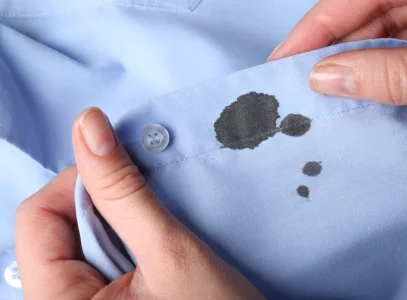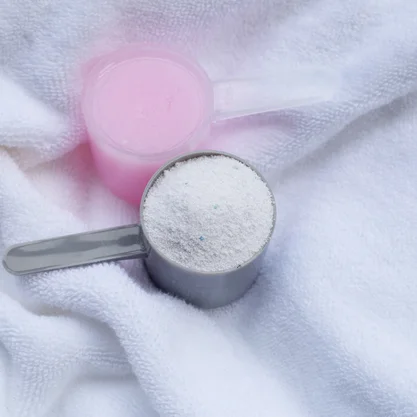The Best Stain Removal Tips: Effective Home Remedies and Tricks
Treat Fresh Stains Immediately
Has this ever happened to you? A small mishap and the stain is there. Now quick action is required. Fresh stains are much easier to remove than dried ones. Therefore, treat them immediately to achieve the best results in stain removal. Acting quickly greatly increases the chances of complete removal.
Different stains require different treatments. Here are three examples:
-
Fresh blood stains should be treated immediately with cold water.
-
Coffee stains are best removed with warm water.
-
Sunscreen stains should be gently blotted without rubbing to avoid making things worse.

Pre-Treating Dried Stains
Dried stains are a real challenge. However, before you give up hope, you should know that thorough pre-treatment is essential. Follow these steps to remove older stains. This method can work wonders:
-
Carefully remove any residue from the stain.
-
Mix vinegar with lukewarm water.
-
Soak the garment in this mixture overnight.
Gall soap is an excellent remedy for treating oil- and protein-based stains and should be left to work for at least 30 minutes. For dried stains, a paste made of baking soda and water can also be applied and should rest for a few hours before washing the garment.
Avoid harsh chemicals to prevent damaging the fabric.
.
Removing Gum
Who hasn’t had gum stuck to their clothes? A simple trick can work wonders here: Place the garment in the freezer to harden the gum. Once frozen, the gum can easily be peeled off.
To remove any remaining gum residue, use a brush and then treat the area with a bit of dish soap. This will leave your clothing clean and gum-free again.
Removing Make-up Stains
Make-up stains are especially annoying, particularly on light fabrics. But don’t worry! Baking soda is the first choice here. Simply apply a bit of baking soda to the stain and gently massage it in. Let the baking soda sit for a while to effectively break down the stain.
After the exposure time, rinse out the baking soda thoroughly and wash the garment as usual. This way, you can reliably remove make-up stains.
Effectively Removing Red Wine Stains
Red wine stains are among the most dreaded types of stains. Quick action is essential here as well. Fresh red wine stains should be immediately sprinkled with salt to absorb the wine. Salt is an excellent agent for binding the liquid and limiting the spread of the stain.
Mineral water, citric acid, and salt are also effective home remedies for removing red wine stains. After applying lemon juice, salt should be added and the stain thoroughly rinsed with water.
Removing Blood Stains from Clothing
Blood stains are a real nuisance, especially when they dry. For fresh blood stains, cold water helps prevent the proteins in the blood from clotting and sticking more firmly to the fabric. So be sure to treat the stain immediately with cold water.
Dried blood stains can be treated by soaking in a cold saltwater solution. Alternatively, the following remedies can help break down the stains:
-
Baking soda
-
Salt
-
Lemon juice
-
Dissolved effervescent aspirin tablets
Removing Grease Stains
Grease stains are particularly stubborn, but home remedies can help. Here are some effective methods for removing grease stains:
-
Soak the affected garments overnight in a water bath with dish soap.
-
Rinse the clothing thoroughly with clean water.
-
Use gall soap to target the stains directly.
-
Baby powder can also help by absorbing the grease.
Dish soap breaks down the grease and binds it in the water, while gall soap can be applied directly to the stain. Afterwards, wash the treated textiles at 40 degrees Celsius with an appropriate detergent.
Removing Oil Stains from Clothing
Fresh oil or grease stains should immediately be covered with a paper towel or sprinkled with cornstarch, baking soda, baking powder, or flour to absorb the oil. For dried oil stains, gall soap and water are especially effective.
Effective remedies for removing oil stains include gall soap, liquid detergent, and baking powder. Make sure to wash the garment as hot as the care label allows.

Removing Ballpoint Pen Stains
Ballpoint pen stains are a common problem, especially with children. Home remedies like lemon juice or vinegar essence are particularly effective. Apply lemon juice or vinegar essence to the stain and let the treatment sit overnight.
The next day, treat the stain with a brush and wash the garment as usual in the laundry. This will reliably remove unsightly ballpoint pen stains.
Removing Sunscreen Stains
Sunscreen stains can be stubborn because they contain organic UVA filters bound in an oily base. A pre-wash without detergent is important to pretreat sunscreen stains. Afterwards, wash at 30 °C with liquid detergent.
Additional products like gall soap or hand soap can also be helpful for sunscreen stains. Avoid powdered detergents to effectively remove the stains.
Removing Rust Stains from Clothes
Rust stains are particularly difficult to remove and require prompt treatment. Here are some steps you can follow:
-
Use lemon juice or white vinegar to remove rust stains from clothing.
-
Soak the rust stain in the solution.
-
Then blot it.
The garment can be sun-bleached to enhance the effect of the solution. After it has soaked in, rinse the solution out with cold water and wash the garment as usual.
Ironing and Storage
Proper ironing and storage of laundry helps extend the lifespan of garments and ensures that clothing always looks well-kept.
Ironing Tips
Delicate fabrics require special techniques when ironing, including the correct temperature and method. Silk, for example, should be ironed on setting two, slightly damp, and without steam. Polyester should only be ironed at a low temperature and on the reverse side to avoid melting the fibers.
It's also important to clean your iron regularly to prevent buildup that could damage delicate fabrics. A clean iron ensures even heat distribution and prevents stains on clothing. When ironing especially delicate fabrics like chiffon or lace, use a pressing cloth to avoid direct contact with the iron. This protects the fine fibers and preserves the structure of the fabric.
For materials like linen or cotton, which tend to wrinkle more, it can be helpful to spray a little water or use a steam iron to smooth out creases more easily. Make sure to hang or lay garments flat immediately after ironing to prevent new wrinkles from forming.
It's beneficial to iron clothes while they are slightly damp, as this makes the process easier. Viscose should also be ironed on the reverse side while slightly damp, and the steam function can be used.
Laundry Storage
Proper storage of clothing in the closet helps prevent wrinkles and damage. Hang delicate garments on padded hangers and store heavier items flat to maintain their shape.


